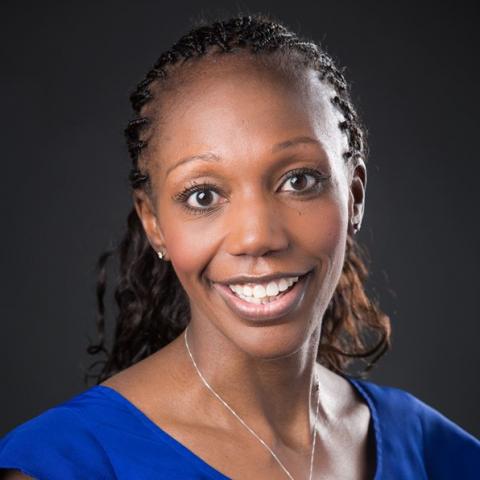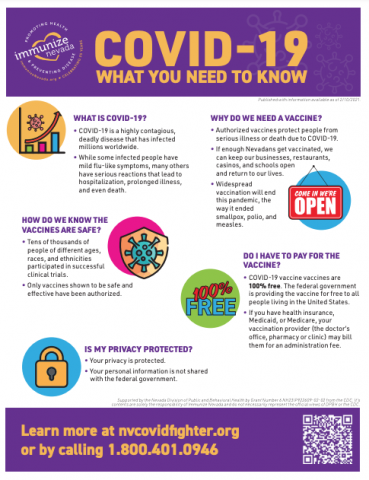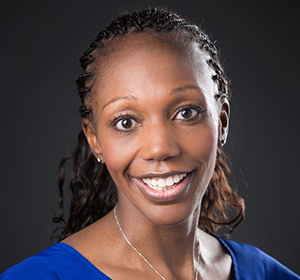
Over the last few month’s I have heard several concerns about receiving the vaccine. Here are some of the common questions I regularly hear.
Why should I trust a vaccine that was developed quickly?
The science behind mRNA has been around for a long time. Yes, this is the first time it’s being used in a vaccine platform; however, it has been around and researched for several years. It’s also important to remember the vaccine was tested on people of all ages, races, and ethnicities.
Are there a lot of side effects? / What are the side effects?
I like to refer to side effects as your body’s dress rehearsal for a COVID-19 infection. When you receive the vaccine, your body receives instructions on how to respond to the coronavirus. The vaccine allows your body to practice how it would attack the coronavirus, how to produce antibodies, how to protect the body against the coronavirus.
If I already had COVID-19, why do I need to get the vaccine?
Although you contracted COVID-19, the level of antibodies (protection) you currently have is unknown. The level of protection can vary dramatically and decreases over time which could result in re-infection. The vaccine provides a specific level (steady-state) of protection against the coronavirus. You are decreasing your risks for re-infection and hospitalization.
There are three vaccine options; which is the best one?
The best vaccine is the one you have access to. I encourage patients to accept any of the three approved vaccines. Having a level of protection as soon as possible is very important to protect you and your family, and it is also critical to help stop the spread. Don’t vaccine shop. You could contract COVID-19 while searching for the “right vaccine.” The goal of the vaccines is to prevent hospitalization and death. All three authorized vaccines successfully do that.
Why is it important to get the second dose?
For two of the vaccines (Pfizer and Moderna), the information you hear about effectiveness is based on two doses. Receiving two doses will allow your body to receive the best protection possible. The Janssen vaccine effectiveness is based on a single dose.
With all the past transgressions against minorities, how can I trust this is different?
Although we have made strides in acknowledging historical mistreatment, more work needs to be done. We need to address past and current mistrust the BIPOC community has with the public health system. Nevada has reached out to community and healthcare leaders of color and asked for their opinion on the vaccine. Personally, as a female physician of color, I decided to participate in videos, commercials, printed materials and organize webinars to encourage everyone to take the vaccine. I believe in the safety and efficacy of the vaccine. I have taken it, and I encouraged my father to get the vaccine as well. As a black 97-year-old WWII, Korean, and Vietnam war veteran, he has deep-rooted mistrust in public health and was hesitant to receive the vaccine. We talked about his concerns, discussed who participated in the clinical trials, how the vaccine was developed, and the level of protection it offered. After hearing the information, he was able to make an informed decision to get the vaccine.
I’m not at high risk; why should I get vaccinated?
It’s important to achieve high-level community immunity. How we do that is primarily through people getting vaccinated. Vaccines allow our bodies to protect themselves through the development of antibodies versus getting sick with the virus. Increasing the number of patients who get vaccinated will decrease the amount of disease in the general population, which will allow us all to return to the activities we enjoy without fear of getting sick.
Why has COVID-19 affected BIPOC communities with both higher infection rates and increased hospitalization?
COVID-19 has, in fact, affected the BIPOC community at a disproportionate rate. We are seeing higher infection rates and hospitalizations. Several factors are driving this, but some of the most commonly understood are:
• Reduced access to testing
• Delayed care when experiencing COVID-19 like symptoms
• Families living in multi-generational households, causing challenges with quarantining & increasing exposure risk
Having questions about the vaccine is normal. Feeling frightful or unsure is okay. I hope this information helps you feel more comfortable with the vaccines and helps you make an informed decision to help protect yourself, your loved ones, and the community.
If you’re not yet vaccinated, here are some things to consider:
• 98.9% of those currently hospitalized with COVID-19 are unvaccinated
• 99.2% of those dying from COVID-19 are unvaccinatedAverage cost of a COVID-19 hospital stay for the insured: $38,221
• Average cost of a COVID-19 hospital stay for uninsured: $73,300
• With nearly 2 billion doses administered worldwide, COVID-19 vaccines have proven overwhelmingly safe and effective.
• 18 to 49-year-olds are making up a larger percentage of those hospitalized
• 32% of COVID-19 patients are experiencing long-term
• Vaccines are 100% free and available without an appointment
Nevada doctors talk about COVID-19 vaccines
Dr. Jay Morgan on the toll of COVID-19 and the promise of vaccines
Nevadans talk about their reasons for getting a COVID-19 vaccine
How two pastors overcame their COVID-19 vaccine concerns
Fast facts about COVID-19 vaccines

